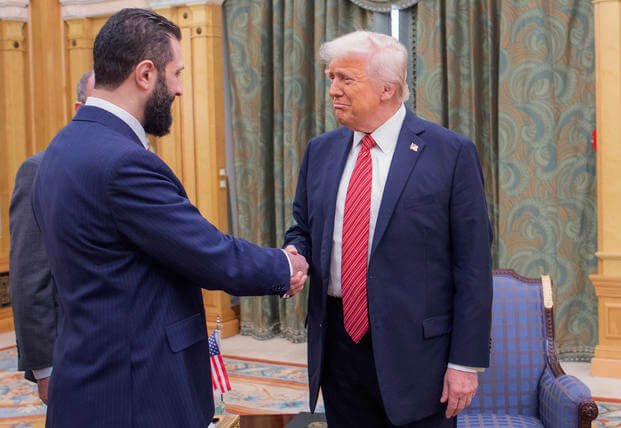WASHINGTON — President Donald Trump signed an executive order on Monday to end many U.S. economic sanctions on Syria, fulfilling a promise to the country’s new interim leader. The move is intended to promote stability and peace, according to White House press secretary Karoline Leavitt.
The executive order aims to reintegrate Syria into the international financial system, paving the way for global commerce and investments from regional neighbors and the United States. Brad Smith, Treasury’s acting undersecretary for terrorism and financial intelligence, emphasized the significance of this action during a call with reporters.
Sanctions Remain for Assad and Key Officials
Despite the lifting of certain sanctions, those imposed on ousted former President Bashar Assad, his top aides, and others implicated in human rights abuses or Syria’s chemical weapons program remain intact. Additionally, sanctions under the Caesar Act, targeting entities supporting Syria’s military and intelligence, are still in place, although the Trump administration has issued temporary waivers.
The White House released the text of the order on X, though the signing was not open to the press. This development follows the U.S. granting Syria sweeping sanctions exemptions in May, marking the first step toward lifting long-standing penalties on a nation ravaged by 13 years of civil war.
Historical Context and International Reactions
The executive order also lifts the national emergency declared by former President George W. Bush, which was a response to Syria’s occupation of Lebanon and its pursuit of weapons of mass destruction. Five additional executive orders related to Syria have been rescinded.
Sanctions targeting terrorist groups and the production and sale of Captagon, an amphetamine-like stimulant, will remain. Trump’s decision follows his meeting with Syria’s interim leader, Ahmed al-Sharaa, in Saudi Arabia in May, where he pledged to lift sanctions and explore normalizing relations.
The European Union has mirrored this approach by lifting nearly all remaining sanctions on Syria, although some restrictions persist. The U.S. continues to designate Syria as a state sponsor of terrorism, and al-Sharaa’s group as a foreign terrorist organization, with the State Department reviewing these designations.
Expert Opinions and Future Implications
Experts are divided on the potential outcomes of lifting sanctions. Some argue it could foster economic recovery and stability, while others caution it might embolden the Assad regime and undermine accountability for past atrocities.
“This is another promise made and promise kept,” Leavitt stated, underscoring the administration’s commitment to its foreign policy objectives.
Analysts note that while the lifting of sanctions could open economic opportunities, the ongoing designation of Syria as a state sponsor of terrorism complicates potential diplomatic engagements. The move represents a significant shift in U.S. policy, potentially altering the geopolitical landscape in the Middle East.
Looking Ahead
As the international community watches closely, the lifting of sanctions on Syria may signal a new chapter in U.S.-Syria relations. However, the path forward remains uncertain, with numerous challenges ahead in achieving lasting peace and stability in the region.
The State Department’s review of Syria’s terrorist designations could further influence future diplomatic and economic interactions. Meanwhile, the global community remains vigilant, balancing the prospects of economic revival with the need for justice and accountability in Syria.
About The Author
 Lululemon Files Lawsuit Against Costco Over Alleged ‘Dupe’ Sales
Lululemon Files Lawsuit Against Costco Over Alleged ‘Dupe’ Sales Poland Enhances Border Controls Amid Rising Tensions Over Irregular Crossings
Poland Enhances Border Controls Amid Rising Tensions Over Irregular Crossings Gunfire Near NYC Pride Injures Two Teens, Raises Safety Concerns
Gunfire Near NYC Pride Injures Two Teens, Raises Safety Concerns Elon Musk and Donald Trump Clash Over Controversial Tax Bill
Elon Musk and Donald Trump Clash Over Controversial Tax Bill Israeli Hostage Tortured to Death by Hamas Over Tattoo Misunderstanding
Israeli Hostage Tortured to Death by Hamas Over Tattoo Misunderstanding